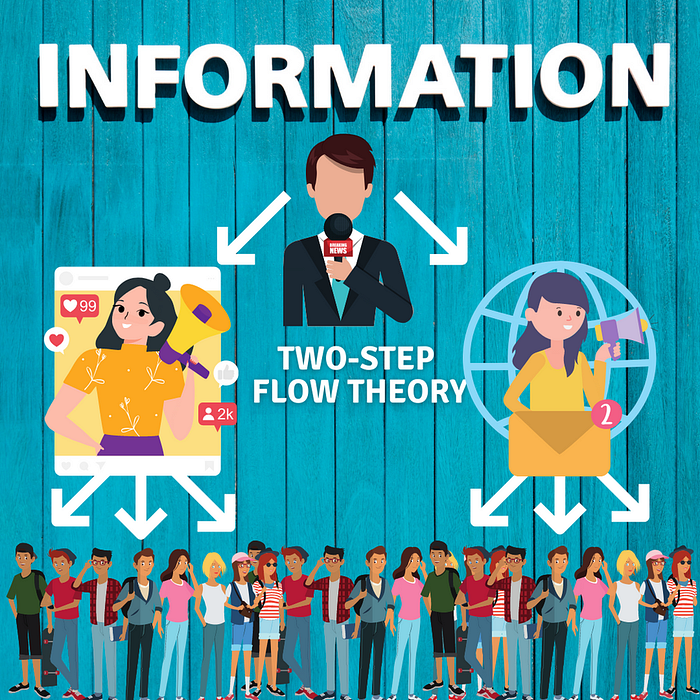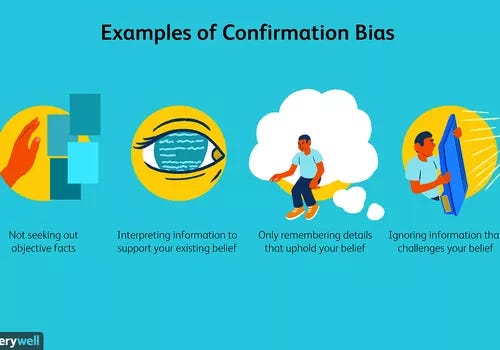Two-Step Flow Theory & Modern Media Consumption
Those of us who consume media every day tend to get our information from sources we trust and follow. This could either be directly from the news or from opinion leaders and media inflencers who take that news and observe it from their perspective to then deliver to the masses. This sort of media consumption is known as the two-step flow theory, which proposes that “interpersonal interaction has a far stronger effect on shaping public opinion than mass media outlets.” Thinking about this specific communication theory, I feel that in today’s digital communication landscape, Millenials and Gen-Z tend to utilize this communication flow more through social media news consumption. Additionally, many tend to get their news from more entertaining sources, similar to the Late Night Shows.

Reflecting on my personal use of social media and overall media consumption, I tend to pay attention to the news based on significant headlines like elections, economic-related information, social justice issues, and climate change. I tend to hear about headlines from opinion leaders rather than the mainstream media. An example of this is through publishing platforms like The Guardian or VOX and from advocates who use social media as their platforms, such as Gretta Thunburg on climate change or Ashton Kutcher, who advocates for the stop of child sex trafficking. Additionally, I see the two-step flow theory applied to televised media sources such as the Late Night Show with Trevor Noah, Jimmy Kimmel Live, the Late Night Show with Steven Colbert, and Real Time with Bill Maher. These opinion leaders tend to take mainstream news and add a comedic spin to it while also delivering their opinion and talking points that the audience can share or continue to talk about.

So why do I listen to opinion leaders rather than just the mainstream news that the information originates from? The answer is, through opinion leaders, I feel there are more meaningful conversations on the topic as mainstream media tends to talk to an audience. I think opinion leaders allow others to conversate, reflect, and participate in the news. They ask for your opinion on the topic, allowing others to learn from each other or even have intense discussions.
An example of my favorite type of media to consume from opinion leaders is on the social media platform Twitter, as I feel that’s where many diverse perspectives come into play through Twitter news threads. A Twitter thread is a series of connected Tweets from one person (who can be an opinion leader or news source. With a line, you can provide additional context, an update, or an extended point by connecting multiple Tweets. I have found some of the most insightful information from Twitter threads amongst all forms of media consumption which I feel many other Millenials and GenZ can relate to.

Though there are positives to consuming media from opinion leaders, I have noticed a con: they have a predisposed opinion that will gauge the conversation on the topic. This opinion can be a sort of confirmation bias to viewers, which is the “tendency to search for, interpret, favor, and recall information in a way that confirms or supports one’s prior beliefs or values.” This type of media consumption decreases considering different viewpoints and can almost lead to group thinking on a topic. Another factor is the possibility that an opinion leader lacks credible sources to back up their opinion and claims, leading to questionable news. I keep these factors in the back of my head when consuming media to investigate other sources and cross-reference.
When sharing the media I consume, I will usually share a video from an opinion leader or an article I read from an alternate news source. This is generally based on sparking conversations with family and friends to gain their insight and opinion on the topic. I always make sure that what I am sharing or talking about is factual and doesn’t lead to false information. Overall, the two-step flow theory is very much alive in how our society consumes, interprets, and distributes news from the media. Opinion leaders can have many positive and negative effects on how one interprets the media and applies it to their life. I believe the essence of media consumption is to hear diverse views and opinions about controversial news pieces, take some of the news with a grain of salt, and conduct further research.
References:
